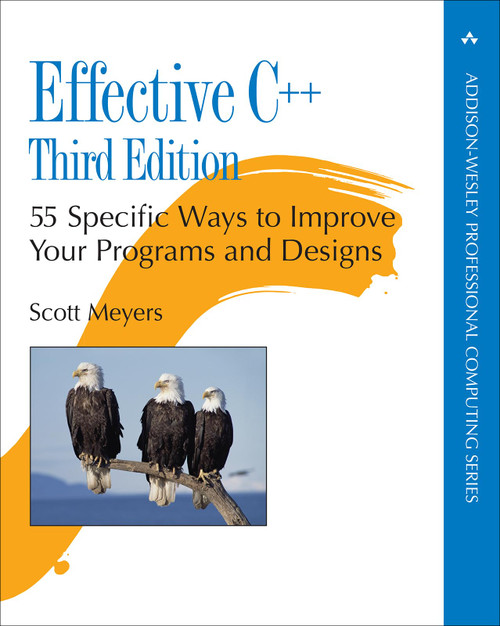Every C++ professional needs a copy of Effective C++. It is an absolute must-read for anyone thinking of doing serious C++ development. If youve never read Effective C++ and you think you know everything about C++, think again. Steve Schirripa, Software Engineer, Google C++ and the C++ community have grown up in the last fifteen years, and the third edition of Effective C++ reflects this. The clear and precise style of the book is evidence of Scotts deep insight and distinctive ability to impart knowledge. Gerhard Kreuzer, Research and Development Engineer, Siemens AG The first two editions of Effective C++ were embraced by hundreds of thousands of programmers worldwide. The reason is clear: Scott Meyers practical approach to C++ describes the rules of thumb used by the experts the things they almost always do or almost always avoid doing to produce clear, correct, efficient code. The book is organized around 55 specific guidelines, each of which describes a way to write better C++. Each is backed by concrete examples. For this third edition, more than half the content is new, including added chapters on managing resources and using templates. Topics from the second edition have been extensively revised to reflect modern design considerations, including exceptions, design patterns, and multithreading. Important features of Effective C++ include: Expert guidance on the design of effective classes, functions, templates, and inheritance hierarchies. Applications of new TR1 standard library functionality, along with comparisons to existing standard library components. Insights into differences between C++ and other languages (e.g., Java, C#, C) that help developers from those languages assimilate the C++ way of doing things.
Effective C++: 55 Specific Ways to Improve Your Programs and Designs
Addison-Wesley Professional
$18.45 - $60.81
- UPC:
- 9780321334879
- Maximum Purchase:
- 2 units
- Binding:
- Paperback
- Publication Date:
- 5/12/2005
- Release Date:
- 5/22/2005
- Author:
- Meyers, Scott
- Language:
- English: Published; English: Original Language; English
- Edition:
- 3
- Pages:
- 320










